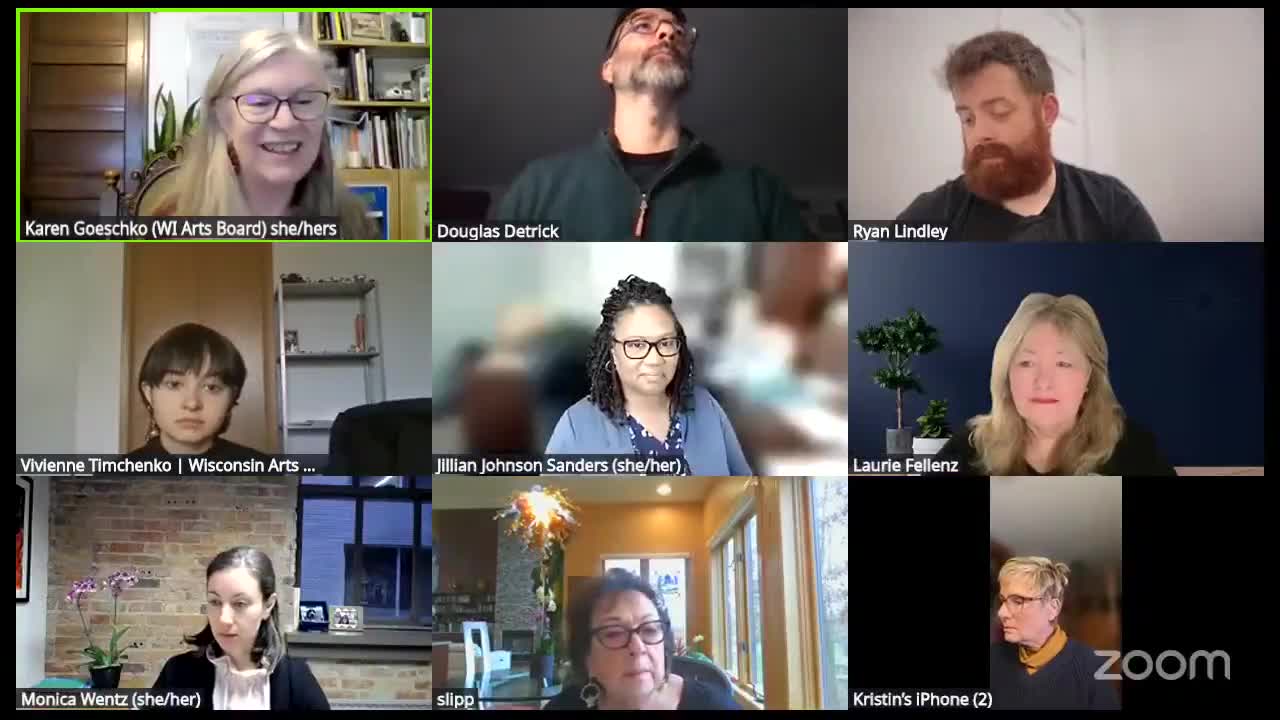Wisconsin Arts Board panel praises artistic strength across applications, urges broad support
Get AI-powered insights, summaries, and transcripts
Subscribe
Summary
A peer‑review panel convened by the Wisconsin Arts Board reviewed dozens of grant applications and found widespread artistic quality and community impact, urging the board to fund the full slate while urging applicants to strengthen evaluation, audience data and work‑sample clarity.
A panel convened by the Wisconsin Arts Board completed a two‑day peer review of grant applications from small to large arts organizations across Wisconsin and recommended broad support for the slate of applicants.
Panelists praised strong artistic work across genres — from early‑music ensembles and choral groups to large professional orchestras and youth programs — and highlighted recurring strengths: deep community partnerships, ambitious education programming, and increasing attention to audience access. "Just Bach Concerts presents free high‑quality baroque performances, with 16 concerts in its 24–25 season," said Laurie, the first reader on that application, as she summarized examples of artistic programming that impressed reviewers.
Panelists also flagged common gaps applicants should address. Many small and midsize groups submitted persuasive narratives but included limited numerical evidence of reach or impact; reviewers repeatedly asked for clearer audience counts, evaluation summaries and budget narratives. Several panelists urged applicants to include less‑edited, real‑time work samples rather than promotional videos so reviewers can judge artistic quality directly. "When applicants provide clear data and evaluation, it strengthens their applications," one panelist said during the meeting’s final discussion.
Technical and administrative issues surfaced during the meeting. Reviewers reported trouble accessing some work samples embedded in support documents and occasional glitches submitting scores; staff advised panelists on workarounds and reminded applicants to place audio/video where reviewers expect it.
On process and disposition, the chair compiled average scores for every application and the panel discussed whether to set a funding floor. After examining the ranked list, several reviewers recommended awarding grants broadly. "They were all strong applications, some stronger than others, and I do think they're all worthy of a grant," said Chris, reflecting the panel's consensus that none of the reviewed applications fell clearly below a standard warranting exclusion.
Panel recommendations to applicants and the Arts Board: - For applicants: provide clear, concise audience and evaluation data, place raw (unpolished) work samples in the work‑sample field, and explicitly document accessibility measures for publicly funded programs. - For the Arts Board: continue orienting panels on scoring calibration and consider clarifying budget and asset questions to make reviewer expectations consistent across organization sizes.
The panel will forward its averaged rankings and reviewer notes to Wisconsin Arts Board staff, who will incorporate the panel report into funding decisions at the board's next meeting. Staff emphasized that the peer review is advisory and that funding amounts are set later by the board.
Panelists thanked one another and staff for thorough deliberations and said they will share written reviewer comments with applicants to help strengthen future proposals.
